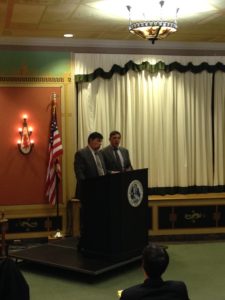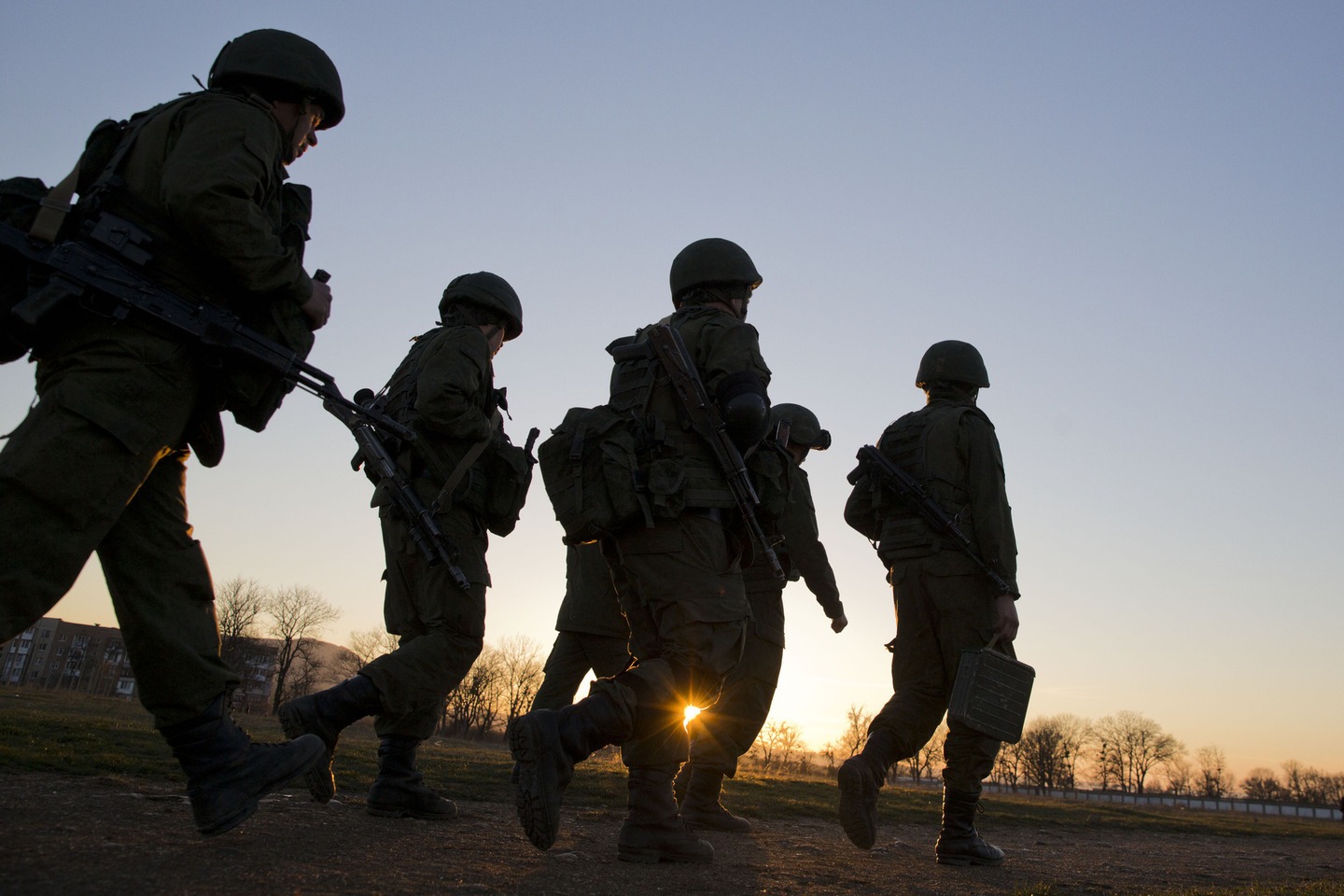WEST LONG BRANCH, NJ- More than 100 students gathered inside Wilson Auditorium Wednesday, February 9, to observe a speech presented by Dr. Alexander and brother Yuri Yarym-Agayev on the effects of Russia’s recent invasion of the Ukraine.
Dr. Yarym-Agayev, a credible speaker, CEO, author and economist shared with the audience a first-hand perspective pertaining to the migration and initial totalitarianism that has come from the insurgence of the Russian rule in the populated Ukrainian city

of Donetsk.
According to Yarym-Agayev, Donetsk was largely a city that thrived off the manufacturing and refining of coal, steel and chemicals. The society was contrived primarily by the practice of the Russians, as the main language spoken was Russian and the majority of individuals viewed Russian media. With that said, the overwhelming consensus agreed that the adoption of a more pro-western ideal would allow for the city to develop itself into a more prominent figure in Europe and free itself of the constraint of recession that plagued the nation after the fall of the Soviet Union.
In May of 2014, Russian troops began to enter the Ukraine, and quickly, a divorce between pro-Russian and pro-Ukrainian citizens was firmly established through way of two factions: The Separatists (pro Ukrainians) and the Donetsk People’s Republic (pro-Russian), better known as the DPR. The quality of life in Donetsk quickly diminished as pay was reduced, jobs were being taken by Russians and—most importantly—the DPR sought to create a new government run rigidly by Russians or those who agreed with the takeover.
Violence has erupted within the city, contorting the effort less from a Russian invasion and more into a terrorist civil war than anything else. It was if to maintain a self-sufficient lifestyle, one had to adhere to the DPR’s new set of ideals. As a result 1.5 million Ukrainians left the city and half a million fled the country.
But what does this mean for citizens of the United States?
According to Yarym-Agayev the United States would inevitably get involved in the ordeal, stating that, “This crisis is about the restoration of the Soviet Union and the rise of global confrontation” and suggested that we would likely intervene by “…helping the Ukraine with arms to overcome resistance; we would need to make the Ukraine a force to recognize.”
Now, how does this affect college students; How is a 20 something year old junior going to be affected? “Totalitarian systems affect everyone…it would affect the global community,” Yarym-Agayev went on to explain.
Whether or not the circumstances would lead to a heavily involved United States is beyond general knowledge, and though it was not implied that our troops would be sent in or another draft would be enacted, it is important to note that this is a serious issue.
The underlying message this presentation conveyed is that is tremendously important to be mindful of current global events. Knowledge is—as cliché as this is about to sound—power, and by being prepared, we, as a country, can do our best to plan for a politically uneasy future.




